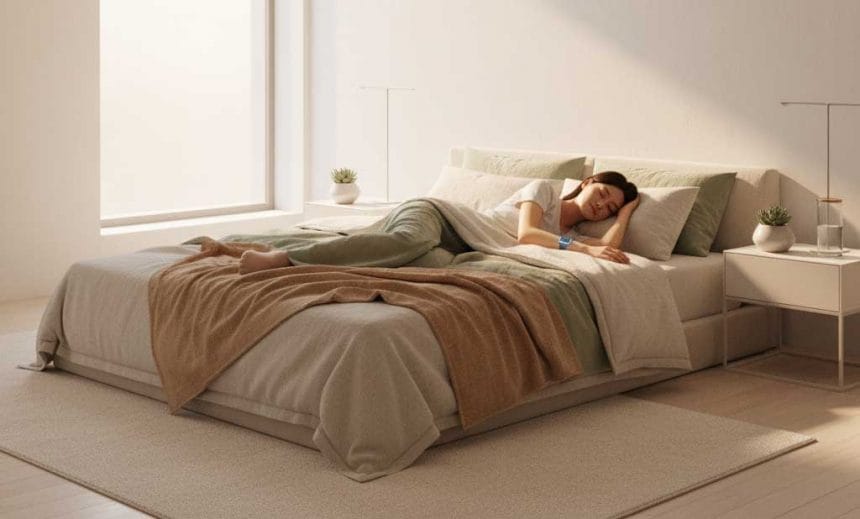Sleep is no longer seen as just a passive state of rest. In 2025, the science of sleep quality is recognized as one of the most important pillars of health, right alongside nutrition and exercise. Poor sleep quality has been linked to reduced productivity, higher stress, and even chronic illnesses. With advances in neuroscience, wearable technology, and lifestyle research, we now understand sleep in ways that were unthinkable just a decade ago.
This article explores the latest breakthroughs in the science of sleep quality, examines the tools available in 2025, and highlights practical techniques you can use for better rest.
Understanding the Science of Sleep Quality
The science of sleep quality begins with measurement. For many years, sleep was judged mainly by duration — getting seven to eight hours was considered sufficient. However, modern research shows that quality matters more than quantity. A person may sleep eight hours but still feel tired if their sleep cycles are disrupted.
Scientists now evaluate sleep quality through several markers:
- Sleep latency: how quickly you fall asleep.
- Sleep efficiency: how much of the time in bed is actually spent sleeping.
- REM and deep sleep: essential phases for memory, learning, and physical recovery.
- Nighttime awakenings: interruptions that fragment rest.
The science of sleep quality connects these measurements with real-life outcomes. Better sleep quality is linked with improved focus, stronger immunity, emotional balance, and even longevity. In 2025, new tracking devices and clinical research allow us to identify problems earlier and recommend personalized solutions.
Wearable Devices and Sleep Trackers
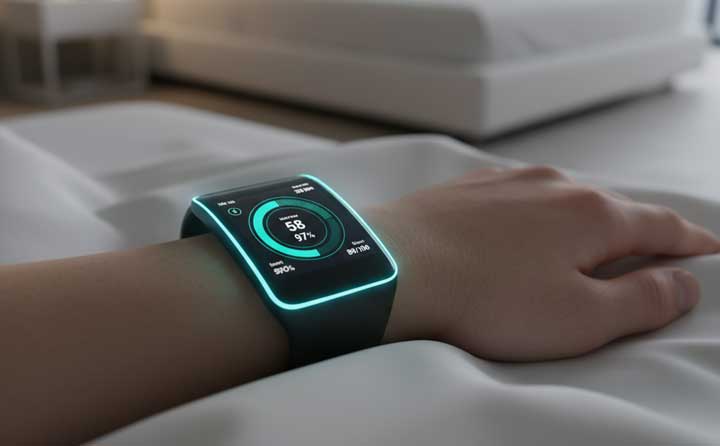
One of the biggest advances in the science of sleep quality is the widespread use of wearable devices. Smartwatches and sleep rings have become more accurate in measuring heart rate variability, blood oxygen levels, and micro-movements during the night. These tools provide users with a clear picture of their sleep patterns and highlight issues such as sleep apnea or restless sleep.
In 2025, many devices integrate with artificial intelligence to offer daily recommendations. For example, if your tracker notices frequent awakenings, it may suggest adjusting your bedtime routine, reducing caffeine intake, or practicing a relaxation technique. This personalized guidance makes the science of sleep quality accessible not only to researchers but to everyday people who want to improve their health.
Smart Bedrooms and Sleep Technology
Beyond wearables, smart home technology has entered the bedroom. Adjustable lighting systems mimic natural circadian rhythms by gradually dimming at night and brightening in the morning. Temperature control devices ensure the bedroom stays within the ideal range of 18–20°C, which the science of sleep quality has shown to support deep sleep.
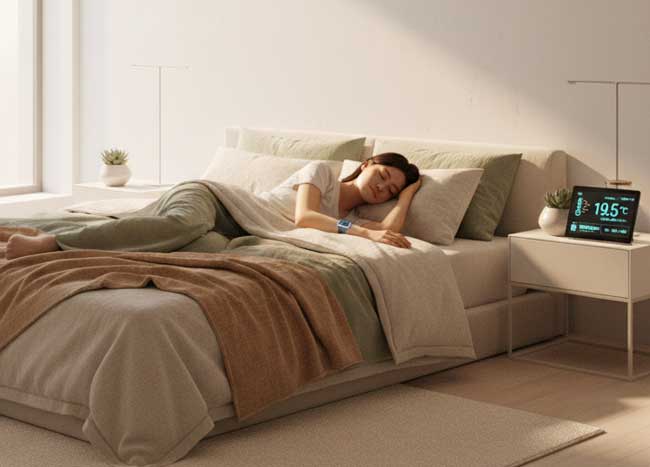
Soundscapes and noise-canceling devices are also increasingly popular. Many people in urban areas suffer from poor sleep quality due to traffic, neighbors, or digital noise. AI-driven sound machines can now generate adaptive white noise or calming natural sounds that sync with your sleep cycles. Together, these innovations create a sleep environment designed to support the body’s natural rhythms.
Breathing and Relaxation Techniques
While technology plays a major role, the science of sleep quality also emphasizes simple, timeless methods. Breathing exercises and relaxation techniques help reduce stress and calm the nervous system before bed. Practices such as mindfulness meditation, progressive muscle relaxation, and guided breathing are scientifically proven to shorten sleep latency and improve sleep efficiency; for step-by-step instructions, see our deep breathing exercises guide. Simple relaxation methods, such as controlled breathing, can enhance rest and overall sleep quality; for a detailed guide, see the 4-7-8 breathing technique for calming the nervous system before bed.
For example, slow rhythmic breathing lowers heart rate and signals the body to prepare for rest. In 2025, digital sleep coaches and mobile apps guide users through short sessions before bedtime. These techniques cost nothing, have no side effects, and directly connect the mind to the body’s natural ability to rest.
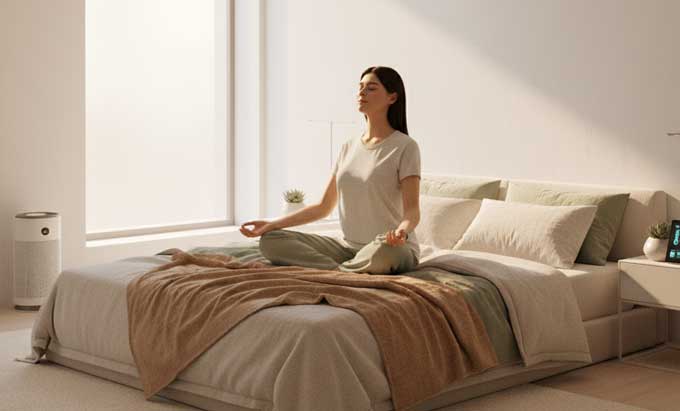
Nutrition and Sleep Quality
Food and drink have always influenced how well we sleep, but the science of sleep quality has now uncovered more precise connections. Heavy meals, sugar, and late caffeine intake disrupt circadian rhythms and reduce deep sleep. On the other hand, nutrients like magnesium, tryptophan, and omega-3 fatty acids are shown to support relaxation and melatonin production.
In 2025, dietary tracking apps integrate with sleep data, showing users how certain foods impact their rest. For example, eating late at night may cause frequent awakenings, while a magnesium-rich dinner can promote deeper sleep. By aligning diet with the science of sleep quality, people can make small changes that lead to major improvements in how refreshed they feel each morning.
Mental Health and Stress Management
Sleep and mental health are inseparably connected. Anxiety, depression, and chronic stress are among the most common causes of poor sleep. The science of sleep quality shows that unresolved stress raises cortisol levels, making it difficult to fall asleep and stay asleep.
In 2025, mental health apps and therapy platforms are integrating sleep modules. Users can track their mood, practice relaxation exercises, and receive cognitive behavioral therapy (CBT) tailored to insomnia. This integration highlights how the science of sleep quality is no longer a niche area of research but part of a holistic approach to health.
Personalized Sleep Coaching with AI
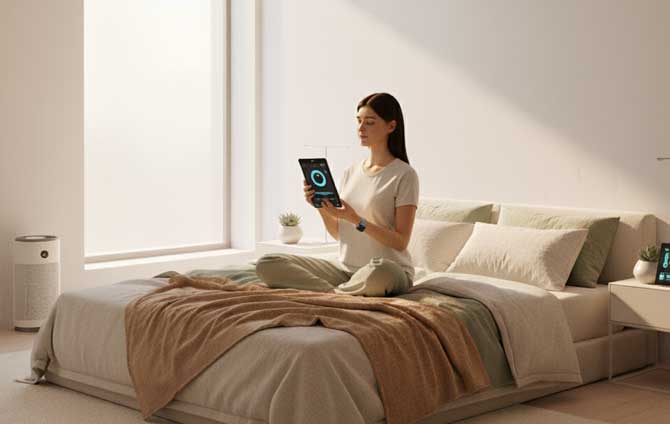
Perhaps the most exciting development in the science of sleep quality is the rise of personalized sleep coaching powered by artificial intelligence. These systems combine data from wearables, diet apps, stress trackers, and even genetic testing to create a custom plan for each individual.
For example, someone with frequent early-morning awakenings might receive advice to adjust light exposure in the evening or try relaxation breathing before bed. Another person struggling with restless legs may be guided toward dietary changes or medical checkups. AI-powered coaching transforms the science of sleep quality into actionable daily habits, tailored to each body’s unique needs.
The Future of Sleep Research
Looking ahead, the science of sleep quality is entering a new era. Researchers are exploring how brain stimulation, sound frequencies, and even micro-dosing with safe compounds might enhance deep sleep phases. Ethical discussions are also growing: should technology be used only to fix sleep problems, or also to push human performance beyond natural limits?
While the answers are still emerging, one thing is clear: in 2025, sleep is no longer underestimated. The science of sleep quality has shown us that rest is not wasted time but the foundation for every aspect of a healthy, productive, and creative life.
Conclusion
The science of sleep quality in 2025 is a blend of advanced technology, practical techniques, and personalized insights. From wearables and smart bedrooms to breathing exercises, nutrition, and AI-powered coaching, we now have more tools than ever to improve rest. By understanding and applying these methods, anyone can transform their nights into a source of energy and resilience.
Better sleep is not just about feeling less tired — it is about living better, longer, and healthier. And that is the true power of the science of sleep quality.






